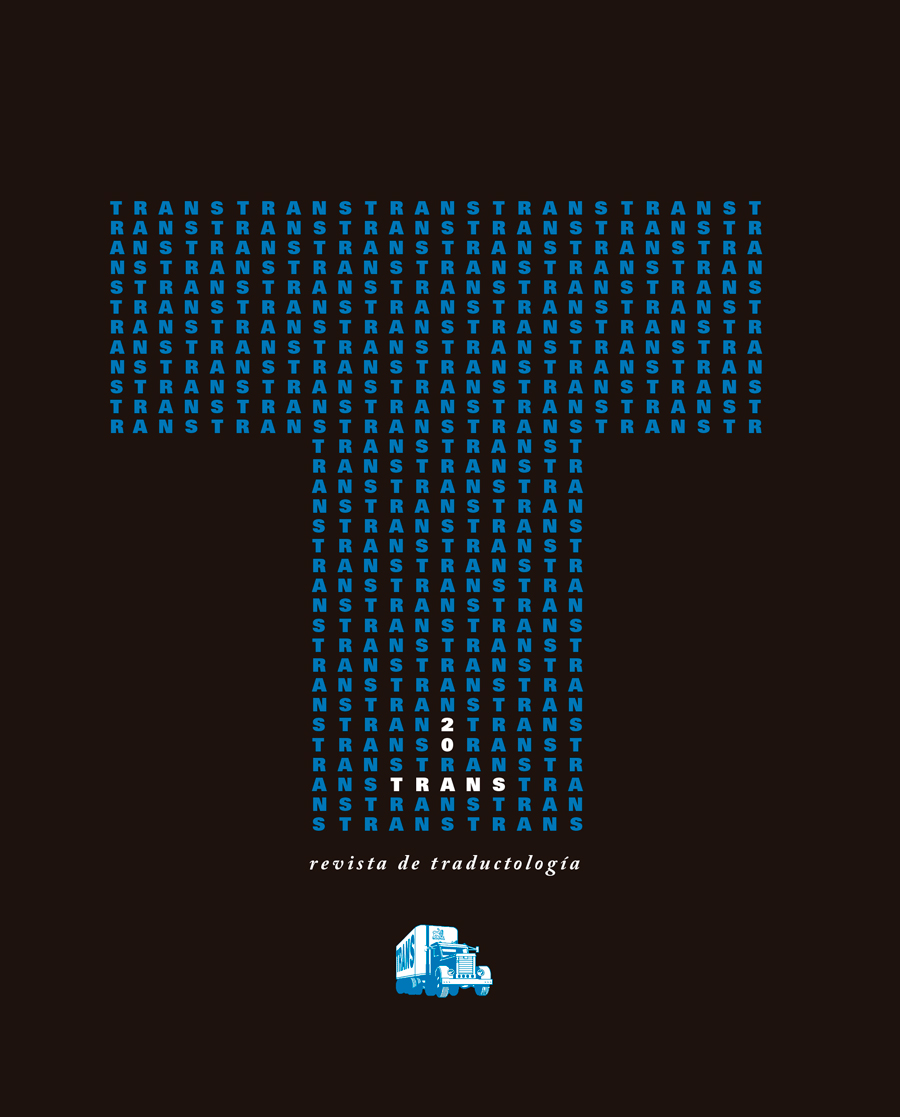Accessibility and multilingualism: an exploratory study on the machine translation of audio descriptions
DOI:
https://doi.org/10.24310/TRANS.2016.v0i20.2059Keywords:
audiovisual translation, accessibility, audio description, machine translation, multilingualismAbstract
This article presents the results of an exploratory study which assesses the machine translation of audio descriptions as offering a possible solution to increase accessibility in multilingual environments. Accessibility is understood to encompass two different categories: sensorial accessibility (in this specific case, for the blind and visually impaired, who cannot access the visual content of audiovisual productions), and linguistic accessibility (for those who want to access this content in their own language). The article presents some thoughts on translation as a means of promoting multilingualism, on the feasibility of translating audio descriptions, and on machine translation as applied to this audiovisual translation mode, before summarising the findings of the present study and, most importantly, opening up new potential avenues for research.Downloads
Metrics
Publication Facts
Reviewer profiles N/A
Author statements
Indexed in
-
—
- Academic society
- N/A
- Publisher
- Universidad de Málaga
Downloads
Published
How to Cite
Issue
Section
License
All contents published in TRANS. Revista de Traductología are protected under the Creative Commons Attribution-NonCommercial-ShareAlike 4.0 International (CC BY-NC-SA 4.0) license. All about this license is available in the following link: <http://creativecommons.org/licenses/by-nc-sa/4.0>
Users can copy, use, redistribute, share and exhibit publicly as long as:
- The original source and authorship of the material are cited (Journal, Publisher and URL of the work).
- It is not used for comercial purposes.
- The existence of the license and its especifications are mentioned.
- ShareAlike — If you remix, transform, or build upon the material, you must distribute your contributions under the same license as the original.
There are two sets of authors’ rights: moral and property rights. Moral rights are perpetual prerogatives, unrenounceable, not-transferable, unalienable, imprescriptible and inembargable. According to authors’ rights legislation, TRANS. Revista de Traductología recognizes and respects authors moral rights, as well as the ownership of property rights, which will be transferred to University of Malaga in open access.
The property rights are referred to the benefits that are gained by the use or the dissemination of works. TRANS. Revista de Traductología is published in an open access form and it is exclusively licenced by any means for doing or authorising distribution, dissemination, reproduction, , adaptation, translation or arrangement of works.
Authors are responsable for obtaining the necessary permission to use copyrighted images.













21.png)
